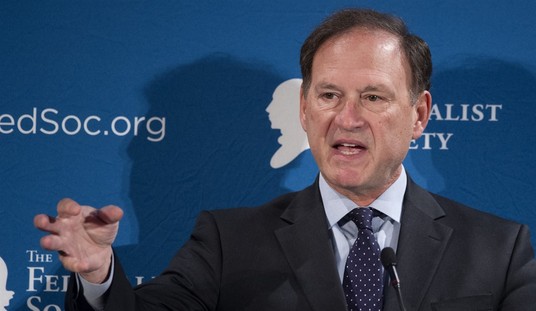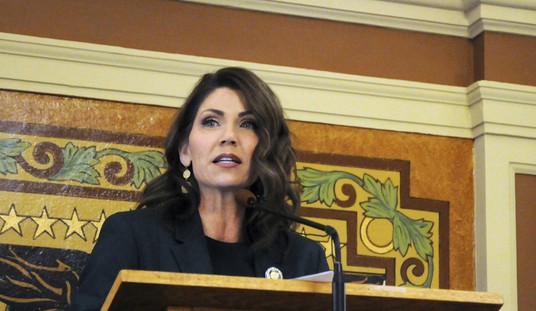Early in his 2012 run for the presidency, Newt Gingrich remarked, “I don’t think right-wing social engineering is any more desirable than left-wing social engineering. I don’t think imposing radical change from the right or the left is a very good way for a free society to operate.” He was referring specifically to Paul Ryan’s Medicare reform proposals, which led to a bit of tension between Gingrich and Rep. Ryan. But taken as a general observation, Gingrich’s comment was intriguing… noble in principle, but utterly wrong-headed, at least in the early Twenty-First Century. He would have been on firmer ground if he had been speaking a hundred years earlier.
The government has grown so huge over the past century that virtually any change in policy could fairly be described as “social engineering.” Almost every level of American society has been engineered. The effects are most profound at lower income levels, where people are more obviously and directly dependent on government. But the vaunted “middle class” has been reprogrammed through government policies as well, and the process is accelerating. Just wait until families with $50,000 incomes are made dependent upon ObamaCare subsidies.
It doesn’t do much good to forswear “social engineering” when the Left is busy reprogramming vast segments of America to accept its values. And it’s not irrational, hypocritical, or inconsistent with a proper respect for individual dignity and liberty to support government policies that nourish our human capital. There’s really no path we could chart that would not influence the behavior of a great many people, no matter what size the government becomes. Even the most restrained, libertarian government has some interest in encouraging desirable, constructive behavior.
But of course, we’re nowhere near a “restrained” government debating the propriety of influencing citizen behavior with a few modest suggestions. The titanic State wades through us with a shovel, flinging millions of people and billions of dollars to and fro. We will now be subject to special punishment if we refuse to purchase government-approved health insurance products from government-approved vendors, a state of affairs that would have sent the Founders scrambling for their muskets.
Part of the ObamaCare debate has been the enormous injury the Affordable Care Act has dealt to the U.S. job market. In many ways, America is being reconfigured to service ObamaCare. The death of full-time employment is one aspect of this process, as hours are cut to help employers escape from the most onerous ObamaCare mandates. Insurance benefits are also being dropped, while premiums rise, most recently in the case of United Parcel Service announcing the end of spousal benefits for 15,000 of its employees.
The liberal response to such news is that employers are over-reacting to the penalties and incentives of the Affordable Care Act. Sometimes they accuse business owners of outright lying about the degree to which ObamaCare factored into their decisions. This foolishness is somewhat understandable from the worshipers of Big Government, where a billion dollars is small change, and a million is just a rounding error. Deficit spending means Big Government never has to make painful choices. Cost overruns in one program don’t mean hard decisions for the others. More money can always be printed to cover any problem. If the public complains too loudly about out-of-control spending, the Left can shut them up by threatening to raise their taxes.
Liberals love to sit in judgment of what “fair” profits should be, and of course their definition is very narrow. The government can never be expected to make do with less, but business owners are supposed to settle for crumbs. It doesn’t occur to liberals that people engaged in voluntary investment might be more nervous about hits to their net income than politicians who spend other people’s money. Investment is a calculated risk. Tight margins make for slim chances. Costs that a politician would sneeringly dismiss as trivial loom large in the minds of CEOs who think about the cost of business expansion, while maintaining a cushion against unexpected setbacks.
Employment is an investment in human capital, and it’s always risky. Even good hires take time to nurture into profitable investments who return positive value on their paycheck dollars. New employees must be trained, demonstrate their reliability, and establish good working relationships with the rest of the team. Sometimes it takes longer than the traditional 90-day probationary period to discover things aren’t working out. Raise the cost on this risky investment, and employers will make it less often. Short-term incentive gimmicks, of the sort favored by Barack Obama’s failed economic theories, don’t do much to change their minds… not when measured against enormous mandated costs, projected over many years.
Individual people live on the margins, too, not just savvy investors and business managers. Social engineers tend to underestimate the effect of policy incentives on large populations. People often find themselves perched on the edge of complex decisions, requiring only a small incentive to go one way or the other. From a broad economic standpoint, there are always a lot of marginal workers – people who might enter the workforce, or might decide not to. Not everyone is filled with the determination to work.
A healthy and productive society reduces the size of this productivity penumbra by providing incentives for marginal employees to join the workforce, and for employers to hire them. A sick and dying economy makes the shadows deeper, by raising costs and tightening rules until employers consider it foolish to take a chance on less immediately desirable employees. At the same time, copious welfare benefits are provided to make work unnecessary.
Michael Tanner, senior fellow of the Cato Institute, put it this way at the New York Post: “Here’s an offer for you: $38,004 per year, tax free. No work required. Apply at your local welfare office.” He went on to detail the maze of government programs that can provide such a generous income for the non-employed, along with incidental costs that accrue to those who accept employment, such as transportation and child care. What sense does it make to sacrifice leisure time and work, if you earn just a small increase in disposable income… let alone a reduction? Why sell your time to an employer, if you can’t make a decent profit on the sale? Some people will insist on working anyway, out of civic duty of self-respect. But some won’t. And a healthy economy… a healthy society… must be concerned with what happens at the margins.
It’s not hard to increase unemployment by convincing employers not to hire entry-level people, while simultaneously convincing prospective employees such jobs are not worth the effort, and the effort isn’t necessary for survival. In fact, the “living wage” movement is busy trying to convince marginal workers that anything less than double the legal minimum wage is an insult. For too many Americans, the time when an offer of employment was an honor has long passed, and employment isn’t really a necessity any more. Neither are family and marital fidelity, which are sources of invaluable emotional, intellectual, and financial support. The longer this goes on, the harder it will be to reverse it. That makes the people who engineered this state of affairs deliberately very happy, but no one else should accept it.
Forcing people to “do the right thing” is tyranny. Abandoning the concept of “right things” leads to squalor and anarchy. The “right thing” should be common sense, which is another way of saying that people on the cusp of making great or terrible decisions should be able to find strength in the accumulated wisdom of society. It’s not difficult to poison that well of wisdom with bad government policies, backed up by a few trillion dollars of seized and borrowed muscle.














Join the conversation as a VIP Member